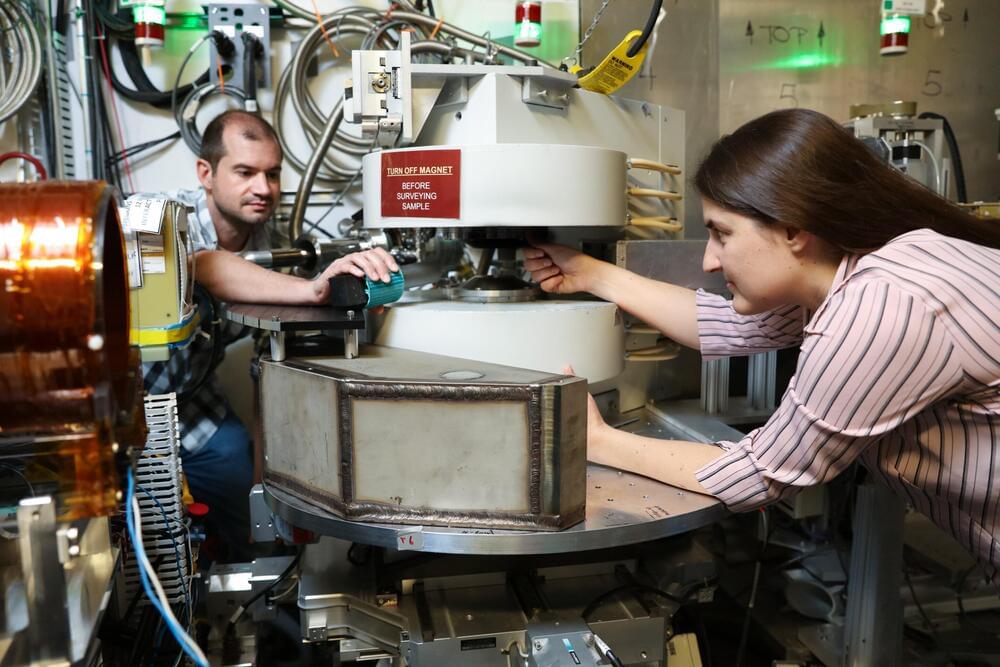To solve a long-standing puzzle about how long a neutron can “live” outside an atomic nucleus, physicists entertained a wild but testable theory positing the existence of a right-handed version of our left-handed universe. They designed a mind-bending experiment at the Department of Energy’s Oak Ridge National Laboratory to try to detect a particle that has been speculated but not spotted. If found, the theorized “mirror neutron”—a dark-matter twin to the neutron—could explain a discrepancy between answers from two types of neutron lifetime experiments and provide the first observation of dark matter.
“Dark matter remains one of the most important and puzzling questions in science—clear evidence we don’t understand all matter in nature,” said ORNL’s Leah Broussard, who led the study published in Physical Review Letters.
Neutrons and protons make up an atom’s nucleus. However, they also can exist outside nuclei. Last year, using the Los Alamos Neutron Science Center, co-author Frank Gonzalez, now at ORNL, led the most precise measurement ever of how long free neutrons live before they decay, or turn into protons, electrons and anti-neutrinos. The answer—877.8 seconds, give or take 0.3 seconds, or a little under 15 minutes—hinted at a crack in the Standard Model of particle physics. That model describes the behavior of subatomic particles, such as the three quarks that make up a neutron. The flipping of quarks initiates neutron decay into protons.
